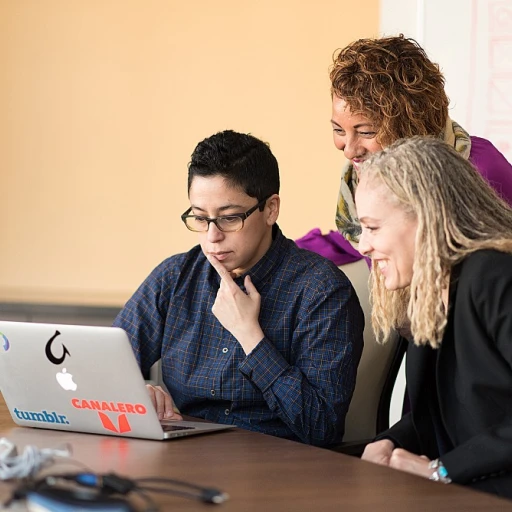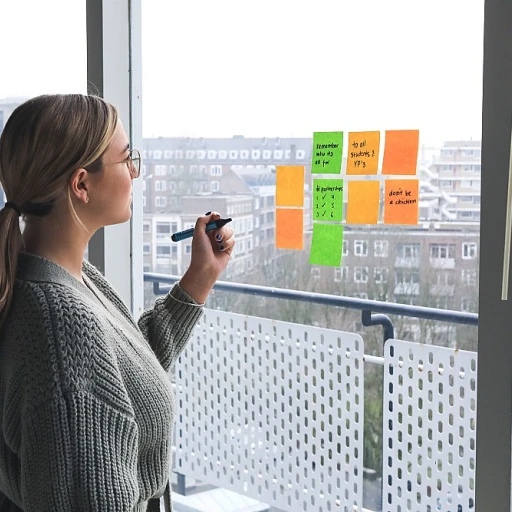Understanding Empowerment in Leadership
Exploring the Essence of Empowerment
Empowerment in leadership stands as a cornerstone for effective management, driving teams towards achieving both personal and collective goals. At its core, empowerment is about instilling a sense of confidence and responsibility, allowing individuals to take control of their work life and lead initiatives. The aim is to foster an environment where every team member feels empowered, prompting them to engage actively and contribute meaningfully.
Consider the example of how individuals working on a project might feel when they're given the opportunity to lead. This opportunity is not just about completing a task, but about empowering them to make decisions, overcome challenges, and experience personal growth. This can often be achieved through effective problem solving and setting realistic project goals.
Empowerment is not a one-time event, but rather an ongoing journey that evolves with each experience. As individuals feel empowered, they bring that confidence back to their community, inspiring others and creating a ripple effect of positivity and progress. It encourages a personal journey where one learns to wield control over life's various aspects, enabling a more empowered life.
In essence, empowerment equips people with the tools to respond positively to three prompts of workplace challenges, personal dilemmas, and communal interactions. This not only aids in building a team's strength but also enhances individual capabilities. To cultivate such an atmosphere, leaders can start by identifying empowering moments—instances where their actions instill confidence and initiative among team members.
The Role of Self-Reflection in Leadership
The Reflective Leader as a Tool For Transformation
Self-reflection in leadership is akin to looking into a mirror that reveals both strengths and areas for growth. It’s an empowering exercise that allows leaders to pause, prompt thought, and gain insights into their actions and decisions. Engaging in this powerful process helps leaders not only feel more in control of their work life but also boosts their confidence and personal growth. One method to engage effectively in self-reflection is through essay-style journaling. This practice can help examine past leadership experiences, identify how particular responses led to feeling empowered or disempowered, and recognize moments that inspire personal growth. Reflecting on specific instances when you felt truly empowered allows you to understand what elements foster that sensation, whether in team dynamics or personal achievements. To gain a deeper understanding, a leader may opt to respond to three journal prompts regularly:- What was a significant decision you made this week that impacted your team?
- Describe a time you felt empowered in a leadership role.
- Outline three things you would like to improve in your leadership approach.
Identifying Empowering Moments
Pinpointing Occasions of Empowerment in Leadership
Identifying when you've felt empowered in your leadership journey is pivotal for personal growth and realizing the impact you have on your team or community. When reflecting on these empowering moments, it's essential to consider both personal and professional settings. This involves examining situations from work projects to community initiatives where you achieved goals or felt a heightened confidence. One effective method is to keep a journal or write an essay detailing occasions when you felt in control of your life and environment. By doing so, you respond to prompts that may reveal patterns or factors in your life that consistently result in a feeling of empowerment. For example, when working on a team project and contributing to problem-solving, consider if these instances helped you and others build confidence and attain a greater sense of purpose. In some cases, identifying empowering moments may arise unexpectedly, such as at Pomona College or in different community organizations. These scenarios might surface when you bring your unique strengths and perspectives to group dynamics, which not only help you grow but also uplift those around you. The time you felt empowered can serve as an invaluable prompt for continued reflection, shaping how you approach future challenges and opportunities. Reflecting on these moments can also aid you in pinpointing your leadership style and understanding its natural evolution. Moreover, acknowledging these experiences can consciously boost your confidence and equip you with the knowledge to foster an empowering environment for others. As you continue your journey, remember to harness these empowering occasions as they can significantly contribute to both your personal and professional life. Ultimately, as you reflect, consider how these moments will help others feel empowered and motivated within your sphere of influence. This understanding can be a step towards nurturing a community that thrives on empowering experiences. For insights on cultivating such skills, exploring essential leadership skills for middle managers can provide valuable guidance.Learning from Empowering Experiences
Gaining Insights from Empowering Moments
Reflecting on significant events in a leadership journey allows individuals to truly understand the empowering experiences that have shaped their path. It's these moments that serve as essays in the ongoing narrative of leadership growth. Whether a successful project at work, solving a complex problem, or achieving personal goals, each instance offers unique lessons. To extract value from these experiences, consider the following prompts:- Identify the Experience: Recall a specific time you felt empowered in your role. What were the circumstances, and why did it make you feel empowered?
- Understand the Impact: How did this moment contribute to your confidence? Did it help you feel in control of your professional journey or life in general?
- Acknowledge the Growth: Analyze what personal growth or skills you gained. How did this prepare you to face future challenges?
Cultivating an Empowering Environment
Cultivating a Culture of Empowerment
In the fast-paced world of leadership, creating an environment where everyone feels empowered is crucial. Empowerment goes beyond a feeling; it's about creating a space where individuals feel confident to express ideas, tackle challenges, and embrace personal growth. Here are several ways leaders can cultivate such an environment:- Foster Open Communication: Encouraging open and honest dialogue is essential. When team members feel heard, they are more likely to share innovative solutions and engage deeply in their work projects. Open communication helps people feel in control of their work life and contributes to a sense of community.
- Set Clear Goals: Defining achievable goals provides clarity and direction. This clarity empowers individuals to focus their efforts and feel motivated. Knowing the "why" behind their tasks can help them connect personal and project goals.
- Encourage Problem Solving: Problems are inevitable. However, empowering team members to address these challenges themselves fosters a sense of ownership and confidence. Offering three prompts for problem-solving scenarios can guide their thought process, yet allow them the freedom to choose their method of response.
- Recognize Achievements: Celebrating accomplishments, both big and small, reinforces a culture of empowerment. Acknowledging individual successes not only boosts morale but also encourages a cycle of continuous achievement toward goals.
Empowerment as a Continuous Journey
Embracing Empowerment as an Ongoing Journey
Understanding that empowerment in leadership is not a one-time achievement but a continuous process is crucial. As individuals, teams, and leaders, recognizing that this journey evolves throughout different stages of work and personal life can help maintain momentum and foster growth. Just as leaders frequently engage in self-reflection to gauge their progress, it is equally important to reflect on empowering experiences that offer valuable insights. Consider these points in your journey towards empowerment:- Self-awareness: Regularly take time to understand your feelings and the reasons behind moments when you felt empowered. This self-awareness builds confidence and reinforces a sense of control over your life and decisions.
- Personal and team goals: Setting and reviewing goals, whether in personal growth or work projects, can help individuals feel empowered. These goals encourage problem solving and drive motivation, ultimately enhancing the sense of achievement.
- Community involvement: Being part of a community or a collective effort fosters a broader canvas for empowerment. Participating in community projects or bringing positive changes within your workplace can prompt a sense of being an integral part of something greater.
- Continuous learning: Engage in learning opportunities that challenge your current thinking and capabilities. This keeps you adaptable and ready for future leadership challenges.
- Feedback and reflection: Seek feedback from peers and mentors as a way to identify areas of improvement. Reflecting on this feedback can set new personal growth prompts, guiding you towards new empowering paths.








